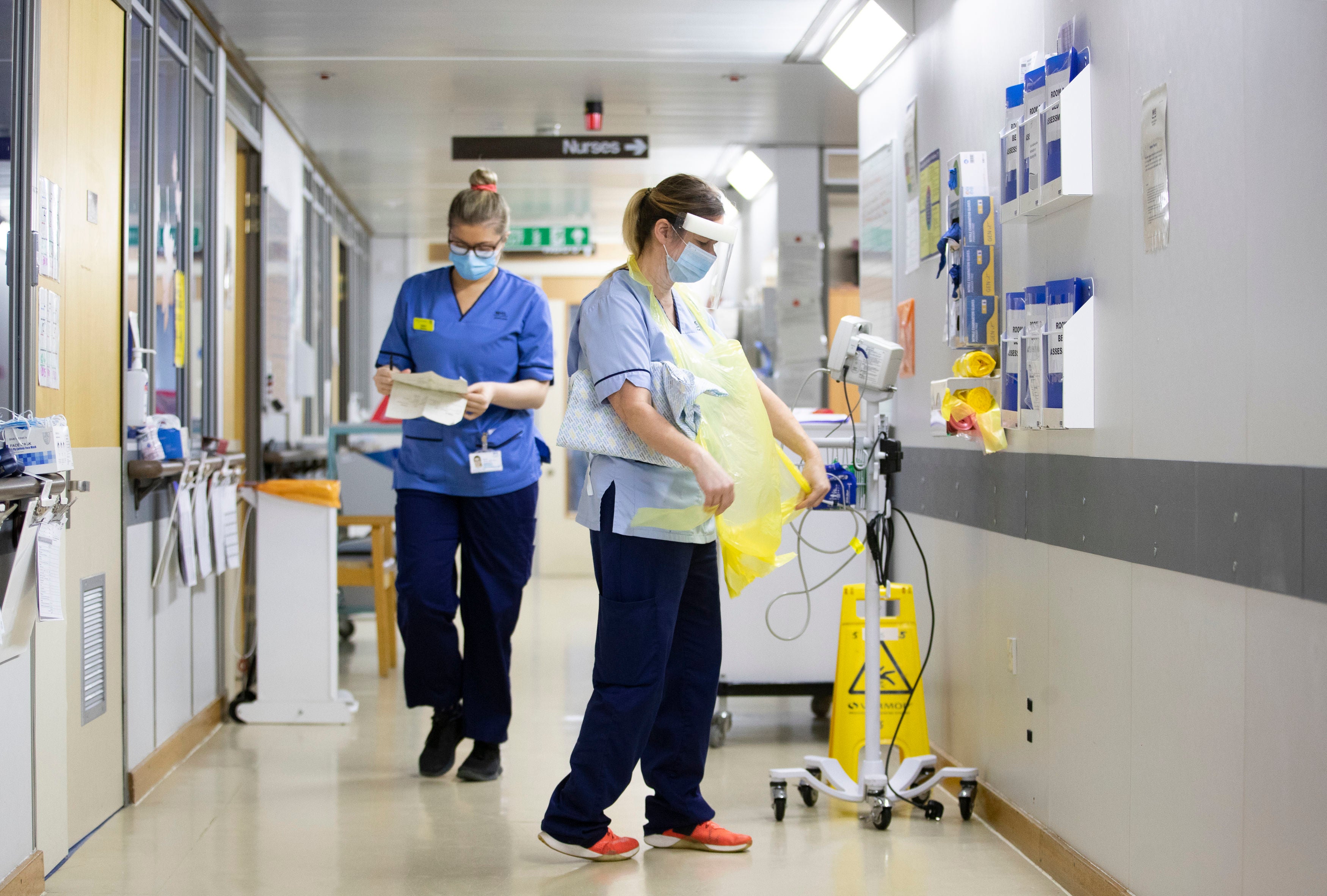NHS trusts replacing nurses with non-nurses compromises safety, warns RCN
Job adverts in the NHS are being opened up to non-nurses despite evidence of impact on safety

Patient safety is being compromised across the NHS because of a growing practice of employing staff without nursing qualifications in nurse roles, the Royal College of Nursing has warned.
It has found repeated examples of jobs previously limited to registered nurses being opened up to either less qualified nursing staff or to other non-nursing workers.
The RCN has warned this erosion of the safety critical role for nurses in healthcare goes against published research which shows substituting registered nurses with other staff increases death rates on wards and leads to worse outcomes for patients.
In some adverts posted on the NHS jobs website, NHS trusts were found by the RCN to be advertising roles such as ward matrons to non-nurses who didn’t even need to be registered with the Nursing and Midwifery Council as long as they were registered with another regulator for allied health professionals.
In another example, a registered nurse was viewed as interchangeable with a less qualified nursing associate, despite the role expecting the applicant to plan and assessing care packages and work independently. Nursing associates should be under the supervision of more senior staff.
Chief executive of the RCN Pat Cullen said: “Filling registered nurse vacancies with those who are not registered nurses is not filling those vacancies. Acting in this way not only leads to vacancies elsewhere but also carries a risk to patient care.
“The very fact that employers are needing to fill nursing posts in this way should set alarm bells ringing with ministers that cannot be ignored and spur them into a proper investment in the long-term future of the nursing workforce.”
While the government has committed to having an extra 50,000 nurses working in the NHS by 2024, the NHS has around 40,000 nursing vacancies before the start of the pandemic. Increasing patient demand has meant more patients needing treatment which has meant workforce numbers, while growing, are still not enough for staff to work safely.
The Independent has seen examples of job adverts including a matron on an acute medicine ward being opened to those without a nursing qualification at Gloucestershire Hospitals NHS Foundation Trust.
The trust also advertised for a nurse or a nursing associate to work in an ophthalmology ward where staff would be responsible for “the assessment and planning of care” and would be “required to be responsible for the clinical area in the absence of a more senior nurse”.
In the Diana, Princess of Wales Hospital in Grimsby, a role to help discharge patients from hospital was specifically advertised at a sub-nurse level but included responsibilities such as assessing and commissioning care packages.
The RCN said the practice of substituting nurses was disregarding the evidence on safety and the years of education and training of degree level nurses.
It said: “Many inquiries and reviews, including the Francis report into the catastrophic events at Mid Staffordshire, have highlighted the risk of not having the right nursing care available for patients and stressed the importance of nursing leadership.”
NHS England’s chief executive Sir Simon Stevens and chief nurse Ruth May have both said nurses should not be substituted by non-nurses.
When the nursing associate role was developed there were widespread concerns those staff would be exploited and used as substitutes for nurses rather than increasing the overall expertise of a ward. There have been repeated examples of trusts reducing the nursing posts to increase nursing associate roles.
Rachel Hollis, chair of the RCN’s professional nursing committee, said: “We need to see all employers in health and social care ensure that where a vacancy exists for a registered nurse, this is open to registered nurse applicants only.
“We respect and value the role of all health care professionals in the multidisciplinary team but we believe that only registered nurses, and our nursing support worker colleagues, can deliver safe and effective nursing care.
“Strong nurse leadership not only improves patient outcomes but also helps in developing the skills of the whole nursing workforce.”
The Nursing and Midwifery Council, which regulates nurses and nursing associates, told The Independet registeres nursing staff were critical to good, safe and effective care.
Geraldine Walters, director of professional practice for the watchdog said: “We only have to look at our latest figures, showing 2,600 more nursing associates have joined our register over the last year alone, to see just how much of a growing and vital role this is in supporting the work of registered nurses.
“However, supporting does not mean substituting them inappropriately. Registered nurses have undergone a three year training and are proficient to assess, lead and plan person-centred care for people. Nursing Associates have undergone a two year training and their knowledge and skills proficiencies are commensurate with that. It’s absolutely up to employers to make sure that they understand the differences and that they have the right skill mix in their health care settings to ensure safe, high quality care.”
NHS England said where there was a clear requirement for a registered nurse the recruitment advert should say so, and where other registered professions can fulfil the role this must be made clear.
Chief nursing officer Ruth May said: “Patient care has always been delivered by teams of professionals working together, and with the emergence of more integrated roles we expect providers to examine the expertise and skills required from a range of professional backgrounds, which ultimately is better for patients.”
Join our commenting forum
Join thought-provoking conversations, follow other Independent readers and see their replies
Comments